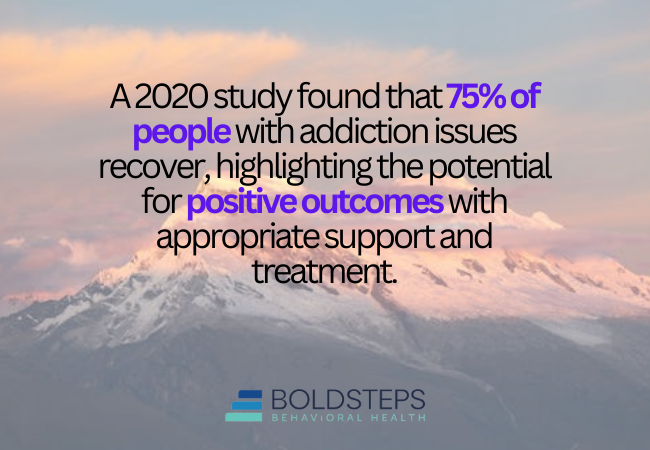Addiction is a disease that affects millions worldwide, yet stigma remains one of the biggest barriers preventing individuals from seeking help. Many people struggling with substance use disorders feel ashamed or judged, which often leads to delaying or avoiding treatment altogether. Recognizing addiction as a medical condition—and understanding the role of rehab centers in recovery—can help break down these barriers and encourage more individuals to take the bold step toward healing.
At Bold Steps Behavioral Health, we are dedicated to breaking the stigma surrounding addiction and offering compassionate, evidence-based care for those seeking recovery. This blog delves deeply into the stigma associated with addiction, the critical role of rehab centers, and how individuals and their families can find the support they need.
The Stigma Around Addiction: A Barrier to Recovery
Stigma refers to the negative attitudes, beliefs, and stereotypes surrounding a particular condition or behavior. When it comes to addiction, stigma often manifests as blame or judgment, leading individuals to feel isolated, ashamed, or unworthy of help.
Common Misconceptions About Addiction
- “Addiction is a moral failing.” Addiction is not a lack of willpower or a character flaw—it’s a chronic medical condition that alters brain chemistry.
- “Only weak people seek help.” Seeking treatment is a sign of strength and courage, not weakness.
- “Rehab is a last resort.” Early intervention can prevent addiction from worsening, making rehab centers valuable at any stage of substance use.
This stigma creates fear and hesitation, preventing many individuals from reaching out for the professional care they need.
Why Breaking the Stigma Is Crucial
Breaking the stigma around addiction is essential to improving access to treatment and supporting those in recovery.
How Education Helps Reduce Stigma
- Recognizing Addiction as a Disease: Substance use disorder is classified as a chronic medical condition by the American Medical Association (AMA) and the World Health Organization (WHO).
- Understanding the Science of Addiction: Addiction impacts brain function, particularly areas related to decision-making, reward, and self-control.
- Emphasizing Recovery Stories: Highlighting success stories can inspire hope and challenge negative stereotypes.
The Role of Rehab Centers in Challenging Stigma
Rehab centers create a supportive environment where clients can heal without fear of judgment. By focusing on medical, emotional, and psychological care, these centers emphasize that addiction is treatable and recovery is possible.
What Rehab Centers Offer: A Lifeline for Recovery
Rehab centers provide more than detox services—they offer comprehensive, individualized care designed to address every aspect of addiction.
Key Services at Rehab Centers
- Detoxification and Medical Support
- Supervised Detox: Safely managing withdrawal symptoms with medical supervision.
- Substance-Specific Care: Programs tailored for specific substances, such as Opiate Addiction Treatment, Alcohol Addiction Treatment, Benzodiazepine Treatment, and Stimulants Treatment.
- Therapeutic Interventions
- Individual Therapy: Helps clients understand the root causes of their addiction and develop coping strategies.
- Group Therapy: Fosters a sense of community and mutual support.
- Family Therapy: Rebuilds trust and communication within families.
- Personalized Treatment Plans
- Programs designed to address unique needs, such as dual diagnosis treatment for co-occurring mental health conditions like anxiety, depression, or PTSD.
- Holistic Approaches
- Incorporating mindfulness, yoga, and art therapy to promote overall well-being and stress management.
- Relapse Prevention and Aftercare
- Teaching clients how to identify and manage triggers to reduce relapse risks.
- Providing continued support through alumni networks and therapy sessions.
Addressing the Unique Needs of Each Individual
One of the most significant advantages of rehab centers is their ability to tailor care to each person’s specific circumstances.
Why Personalized Care Matters
- Substance-Specific Treatment: The challenges of recovering from alcohol addiction differ significantly from those of opioid or stimulant addiction.
- Cultural and Social Sensitivity: Treatment programs consider cultural, social, and familial influences on substance use.
- Flexibility in Care: Options like Partial Hospitalization Programs (PHPs), Intensive Outpatient Programs (IOPs), and Outpatient Treatment ensure that clients can find a program that fits their lifestyle and needs.
Personalized care increases engagement and improves outcomes, ensuring that clients feel seen, supported, and empowered throughout their recovery.
The Power of Compassionate, Stigma-Free Care
Compassion is at the heart of effective addiction treatment. At the best rehab centers, care is rooted in empathy, understanding, and respect for each individual’s journey.
Creating a Safe and Supportive Environment
- Nonjudgmental Care: Clients are treated as individuals deserving of dignity and respect, not as their addiction.
- Building Trust: Therapists and counselors work to create a space where clients feel safe sharing their thoughts and experiences.
- Encouraging Vulnerability: Recovery often involves confronting painful emotions, and a compassionate approach makes this process less daunting.
By removing judgment from the equation, rehab centers empower individuals to focus fully on their healing and growth.
How to Choose the Right Rehab Center
Selecting a rehab center is one of the most critical steps in the recovery process.
Factors to Consider When Choosing a Rehab Center
- Accreditation and Licensing
- Ensure the facility is accredited and employs licensed professionals.
- Comprehensive Care Options
- Look for centers that offer detox, therapy, and aftercare under one roof, such as detox and rehab centers.
- Personalized Programs
- Find a facility that tailors treatment plans to individual needs, including dual diagnosis and co-occurring disorders.
- Evidence-Based Therapies
- Check for the use of proven methods like Cognitive Behavioral Therapy (CBT), Dialectical Behavior Therapy (DBT), and motivational interviewing.
- Family Involvement
- The best rehab centers offer family therapy and education programs to strengthen the support system at home.
How Bold Steps Behavioral Health Breaks the Stigma
At Bold Steps Behavioral Health, we understand that seeking help for addiction can be intimidating, especially in the face of stigma. That’s why we strive to create an environment where clients feel respected, supported, and empowered.
What Sets Bold Steps Behavioral Health Apart:
- Comprehensive Services: From detox to aftercare, we provide a full continuum of care tailored to each client’s needs.
- Personalized Treatment Plans: We customize every aspect of treatment, including therapy, medication management, and holistic approaches.
- Experienced Team: Our licensed professionals are committed to providing compassionate, evidence-based care.
- Safe and Supportive Environment: Our facility is designed to be a judgment-free zone where healing takes priority.
- Family-Centered Care: We believe in the power of strong support systems and actively involve loved ones in the recovery process.
Take the Bold Step Toward Recovery
Addiction does not define you, and seeking help is a courageous decision. At Bold Steps Behavioral Health, we are here to support you every step of the way, offering compassionate care that prioritizes your unique needs.
Contact Us Today
If you or a loved one is ready to break the cycle of addiction, reach out to us at (603) 915-4223 or visit Bold Steps Behavioral Health. We provide:
- Drug rehabilitation center services for various substances.
- Rehab alcohol centers tailored to individuals struggling with alcohol addiction.
- Detox and rehab centers for comprehensive care.
Let us help you take the bold step toward a healthier, brighter future.
Frequently Asked Questions (FAQs)
How do rehab centers help break the stigma of addiction?
Rehab centers provide education, compassionate care, and a supportive environment, emphasizing that addiction is a treatable medical condition, not a personal weakness.
What services do rehab centers offer?
Rehab centers provide detoxification, therapy (individual, group, and family), personalized treatment plans, holistic approaches, and relapse prevention programs.
How do rehab centers address specific addictions?
Specialized programs are tailored for substances like alcohol, opioids, benzodiazepines, and stimulants, ensuring treatments are effective and substance-specific.
Can rehab centers treat co-occurring mental health disorders?
Yes, many rehab centers offer dual diagnosis treatment, addressing both addiction and co-occurring mental health conditions like anxiety, depression, or PTSD.
What types of therapy are available in rehab centers?
Rehab centers use evidence-based therapies like Cognitive Behavioral Therapy (CBT), Dialectical Behavior Therapy (DBT), trauma-focused therapy, and holistic practices like mindfulness and yoga.
What is the role of family in addiction recovery?
Family therapy helps rebuild trust, improve communication, and create a supportive environment for recovery.
How do rehab centers support long-term recovery?
Through aftercare services, relapse prevention plans, alumni programs, and ongoing therapy, rehab centers ensure clients have continued support after treatment.



